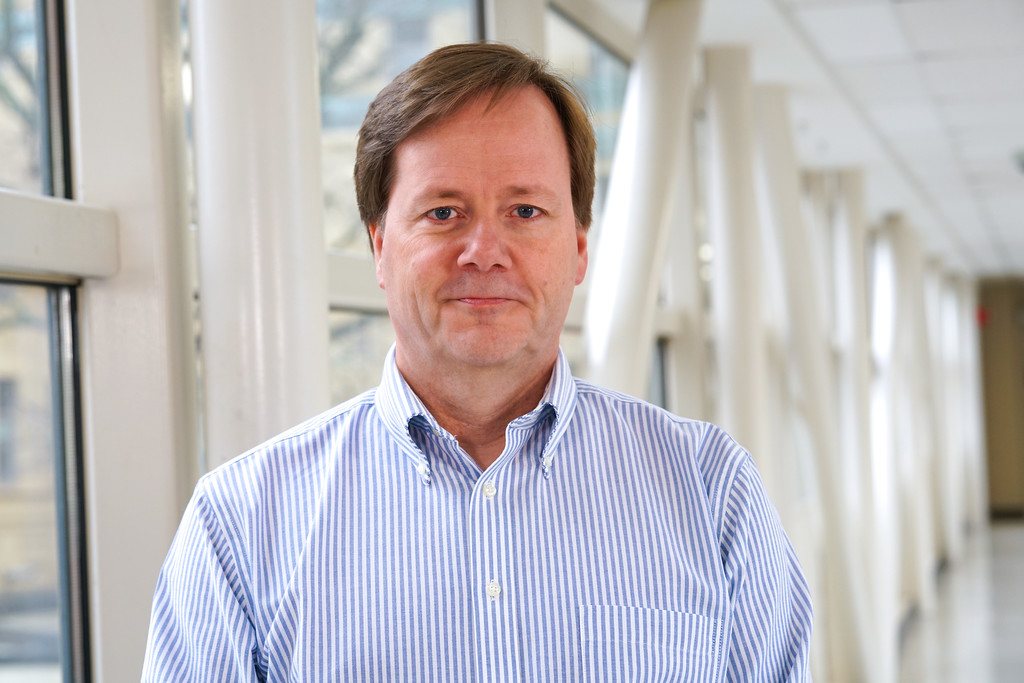Activity of Ezh2 gene is dose-dependent, scientists report at AACR Annual Meeting in Chicago
- Partial loss of the Ezh2 gene makes prostate cancer easier to treat
- However, complete loss of the gene makes prostate cancer more aggressive
- Additional studies underway to confirm and unravel these findings
CHICAGO, Ill. — Roswell Park Comprehensive Cancer Center researchers have found that the effect of a key gene driving an aggressive, recurrent and often incurable form of prostate cancer is dose-dependent, opening new avenues for therapies that overcome resistance to treatment of advanced disease. They are presenting the results of this research at the American Association for Cancer Research (AACR) Annual Meeting 2018, which continues through April 18 in Chicago, Ill.
David Goodrich, PhD, Professor of Oncology in the Department of Pharmacology & Therapeutics, is the senior author and Kristine Wadosky, PhD, Research Affiliate, is the first author of “Ezh2 is a dose-dependent mediator of prostate cancer aggressiveness and lineage transformation” (abstract 3016), to be presented Monday, April 16, from 3 to 5 p.m. CDT.

Prostate cancer is one of the most common cancers affecting American men. About 8% of those affected will develop advanced cancer. While newer targeted treatments designed to interfere with molecules known to encourage the growth and spread of cancer cells are effective for some patients, a majority of patients with this advanced and aggressive form of prostate cancer will succumb to their disease.
The Roswell Park team previously developed an experimental model of treatment-resistant prostate cancer and identified a new therapeutic target called Ezh2 — an enzyme that has a widespread effect on the expression of genes that drive resistance to prostate cancer therapy. Prostate cancer becomes more aggressive as EzH2 levels rise, and drugs that inhibit this enzyme are currently in clinical development. When the research team used these drugs in their model, formerly treatment-resistant prostate cancer tumors became treatable once again.
For the current research, the researchers developed a new model in which they deleted this enzyme’s gene in prostate cancer, Ezh2, expecting that this would render tumors less aggressive and easier to treat. Surprisingly, deleting the gene and removing the cancer-driving enzyme had the opposite effect: prostate cancer tumors became even more aggressive and harder to treat. This research is the first to show that the effect is dose-dependent.
“It is unclear why decreasing Ezh2 levels by partly removing its gene makes prostate cancer easier to treat while removing it entirely makes the disease more — not less — aggressive,” says Dr. Wadosky, who will outline the team’s findings in a podium presentation at the meeting. “This unexpected result provides us with completely new implications for use of drugs against this target in prostate cancer patients. We are now looking at mechanisms of resistance, hoping to better understand this effect and identify those patients who will benefit most from a new class of targeted drugs.”
More than 20 teams from Roswell Park Comprehensive Cancer Center have been invited to present their research at AACR 2018. In addition, Marc Ernstoff, MD, The Katherine Anne Gioia Chair of Medicine, will lead the roundtable discussion “Practicing immunotherapy in the clinic” on April 14 and Kunle Odunsi, MD, PhD, FRCOG, FACOG, Deputy Director, Chair of Gynecologic Oncology and Executive Director of the Center for Immunotherapy will be lead discussant for the session “Multimodality Immuno-oncology Approaches” on April 15. Dr. Odunsi will also be the featured presenter at an April 18 Meet the Experts session, “Reprogramming the Tumor Microenvironment to Enhance ‘Next-Generation’ Adoptive Cellular Therapy.”
###
Roswell Park Comprehensive Cancer Center is a community united by the drive to eliminate cancer’s grip on humanity by unlocking its secrets through personalized approaches and unleashing the healing power of hope. Founded by Dr. Roswell Park in 1898, it is the only National Cancer Institute-designated comprehensive cancer center in Upstate New York. Learn more at www.roswellpark.org, or contact us at 1-800-ROSWELL (1-800-767-9355) or ASKRoswell@roswellpark.org.
Annie Deck-Miller, Senior Media Relations Manager
716-845-8593; annie.deck-miller@roswellpark.org
